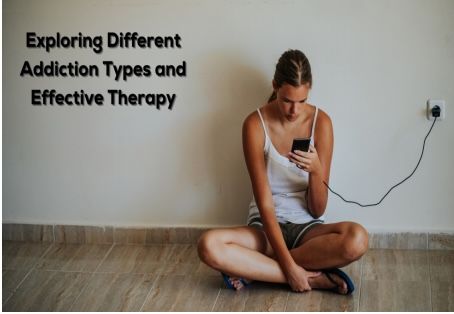When it comes to dealing with addiction, therapy plays a crucial role in helping individuals overcome their struggles and achieve long-term recovery. There are various types of addiction therapy available, each offering a unique approach to addressing the complexities of addiction. In this article, we will explore some of the most common types of addiction therapy and how they can help individuals on their journey to sobriety.
Cognitive Behavioral Therapy (CBT)
Cognitive Behavioral Therapy (CBT) is a widely used therapeutic approach that focuses on changing negative thought patterns and behaviors associated with addiction. By helping individuals identify and challenge their negative beliefs and behaviors, CBT aims to promote healthier coping mechanisms and problem-solving skills. CBT is often used in individual and group therapy settings and has been shown to be effective in helping individuals maintain long-term abstinence.
Dialectical Behavior Therapy (DBT)
Dialectical Behavior Therapy (DBT) is another form of therapy that is particularly effective for individuals struggling with addiction and co-occurring mental health disorders, such as depression and anxiety. DBT focuses on teaching individuals mindfulness, emotion regulation, distress tolerance, and interpersonal effectiveness skills. By helping individuals develop these skills, DBT aims to improve their ability to cope with stress and avoid relapse.
Motivational Interviewing
Motivational Interviewing is a collaborative, goal-oriented form of therapy that helps individuals explore and resolve their ambivalence about making changes in their lives. This type of therapy is particularly effective in helping individuals who may be resistant to treatment or have mixed feelings about their substance use. By helping individuals identify their values and goals, Motivational Interviewing can increase their motivation to change and commit to recovery.
Family Therapy
Family therapy is a type of therapy that involves family members in the recovery process. This type of therapy can be particularly helpful for individuals whose relationships with their family members have been strained due to their addiction. Family therapy aims to improve communication, resolve conflicts, and rebuild trust within the family unit. By involving family members in the recovery process, individuals can receive much-needed support and encouragement as they work towards sobriety.
12-Step Facilitation Therapy
12-Step Facilitation Therapy is a structured approach to therapy that is based on the principles of 12-step programs, such as Alcoholics Anonymous (AA) and Narcotics Anonymous (NA). This type of therapy aims to introduce individuals to the philosophy and practices of 12-step programs, helping them engage with a support network of peers who are also in recovery. 12-Step Facilitation Therapy emphasizes acceptance, surrender, and spirituality as key components of the recovery process.
Ultimately, there is no one-size-fits-all approach to addiction therapy, as each individual’s journey to recovery is unique. However, by exploring the different types of addiction therapy available and working with a qualified therapist, individuals can find a treatment approach that best suits their needs and helps them achieve lasting sobriety. Whether it’s CBT, DBT, Motivational Interviewing, family therapy, or 12-Step Facilitation Therapy, there are numerous options available to support individuals on their path to healing and transformation.
Remember, seeking help is the first step towards recovery. Don’t hesitate to reach out to a therapist or treatment center if you or a loved one is struggling with addiction. There is hope, and with the right support, recovery is possible.
Recovery is a journey, not a destination. Take the first step today.
